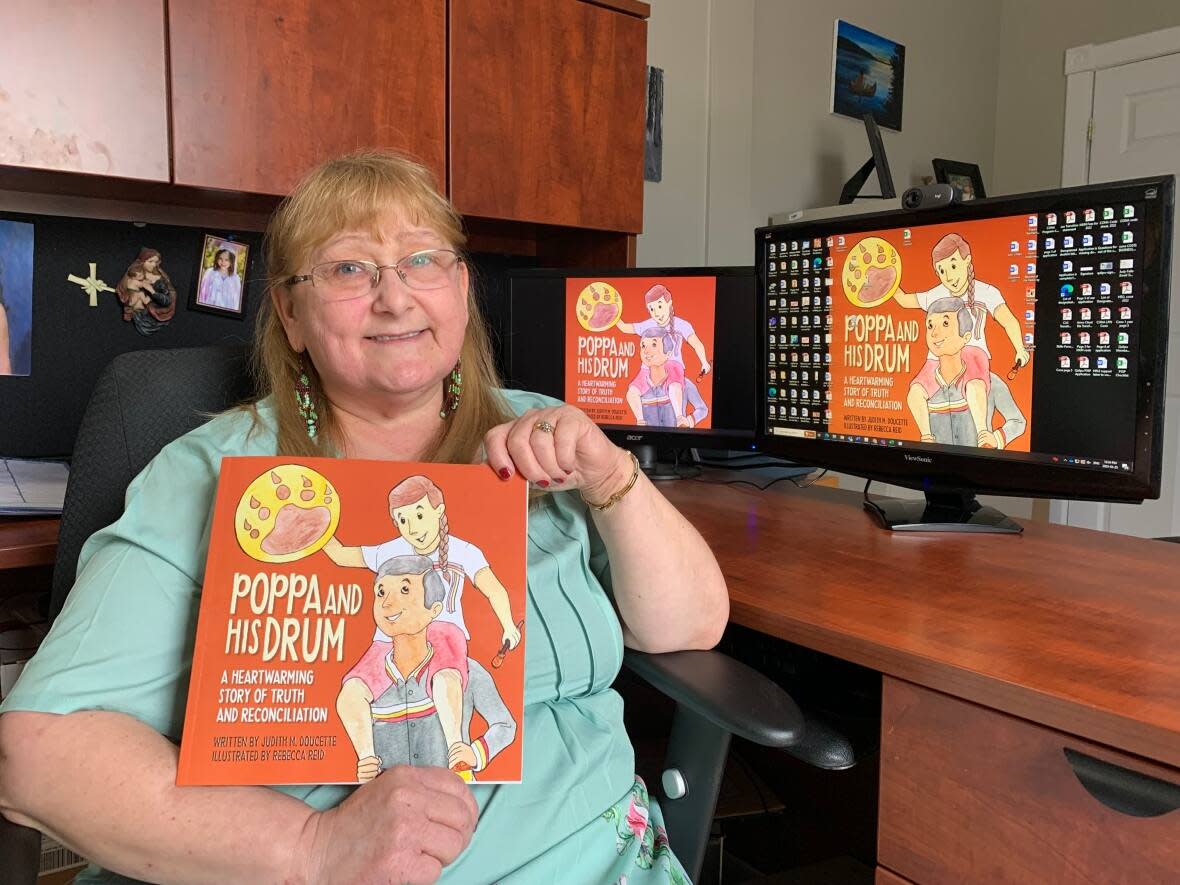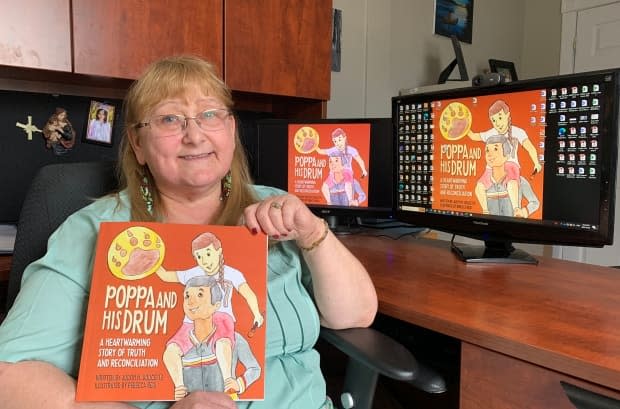Mi'kmaw author writes children's storybook to reconcile her father's past


A Mi'kmaw woman from St. George's, N.L. was inspired by the Truth and Reconciliation Commission — and her own father's childhood — to write a children's storybook.
Judy Doucette Falle is the author of Poppa and His Drum, and it's her re-imagining of what it might have been like if her father had lived to see the resurgence of Mi'kmaw culture in Newfoundland.
Doucette Falle's father, Francis Doucette, was French Mi'kmaw and lived in Stephenville and Codroy Pond, speaking only French until the age of 12 when his family moved to St. George's.
At school there in the 1940s, according to Doucette Falle, her father was bullied by classmates who used racial slurs, and he was punished by teachers for speaking French.
"My only regret in this story is Dad did not live long enough to portray Poppa in the book," said Doucette Falle.
"My dad passed away about 25 years ago, and did not live to see the day of truth and reconciliation for him, unfortunately. But I like to think that my voice is speaking for him and celebrating with him."
No more secrets
When she was growing up, Doucette Falle said her father didn't talk about his mistreatment at the hands of Roman Catholic nuns who taught at the school in St. George's.
She only found out about the name-calling and harsh punishments he endured when she was an adult.
"He was so embarrassed, so ashamed of the way he was treated, he didn't want us to know about it. He didn't share that with us," said Doucette Falle.
After the Truth and Reconciliation Commission came out with its findings about residential schools in Canada, Doucette Falle said she felt her father's story also deserved to be told, even though he hadn't attended a residential school.
"We still had that same racism, humiliation of being French Indian, here in St. George's at least," said Doucette Falle.

Changing times
In writing the book, Doucette Falle imagined what her father's reaction might have been if he were invited to school with his grandson, and his surprise to find that schools in the modern day are very different than the one he attended.
"He remembers those days in school, and he doesn't want to relive those embarrassing moments," said Doucette Falle, in explaining the character of Poppa in her book.
She said her voice still catches when she reads one line in particular, in which Poppa's grandson (named Francois in her father's honour) says, "Poppa, you can play your drum in school at last."
"I couldn't read that line for about six months after I wrote the book. I couldn't read that line out loud. It was just too overwhelming, emotional for me. Still is," said Doucette Falle.
Song of hope
For her storybook, Doucette Falle also penned the words for a "Reconciliation Song," an original song that references the oppression of Indigenous peoples in Canada and looks to a better future.
In the song, Doucette Falle alludes to Orange Shirt Day and wearing red in memory of missing and murdered Indigenous women and girls.
"I think we are giving our parents and grandparents some justice for what's been stolen from them. We're reclaiming what was taken from us," said Doucette Falle.
In spite of the fact that her father was secretive about his experience at school, she believes he'd be glad things are out in the open now.
"I think Dad would be so proud of me. I think he's very happy his story is being told," she said.
Poppa and His Drum was illustrated by Rebecca Reid, and is published by Flanker Press.


